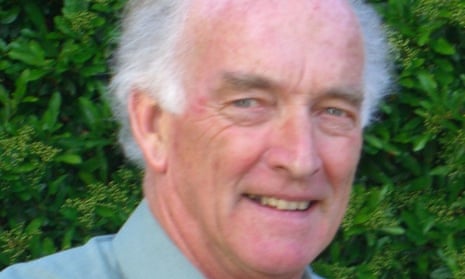My father, Canon Philip Crowe, has died aged 84. If you recognise his name but are not sure why, you probably heard him on BBC Radio 4’s Thought for the Day during the 1980s. He often took the Friday topical slot; he would occasionally have to rewrite his piece on the way to the studio due to breaking news. He was a left-leaning progressive who was unafraid to say what he believed was right, which occasionally led to controversy.
Born in Wrexham, Philip was the third of four children of Frank Crowe, who ran a local grocery business, Crofruit, and his wife, Hilda (nee Moss). (Frank’s younger brother, John, was the grandfather of the actor Russell Crowe).
Philip attended Repton school in Derbyshire, where he missed his exams through illness. Despite this, after national service he was accepted to study theology by Selwyn College, Cambridge. When he was ordained a minister in 1962, he was already in love with Freda Gill and they married the following year. The first of their three children was born nine months later.
Philip’s career began at Oak Hill College in London alongside the future archbishop of Canterbury George Carey, who recalls Dad editing the report of the National Evangelical Anglican Congress of 1967, which was highly influential on the Church of England. He subsequently edited the Church of England newspaper, then relocated in 1970 to Birmingham, to be lecturer at St Martin’s in the Bull Ring and chaplain to the children’s hospital.
Disliking city life, though, he next spent 11 years as rector of Breadsall, Derbyshire. He used the large garden for a menagerie of animals including chickens, goats, sheep, rabbits, cats and a large Old English sheepdog. Ahead of his time, he was inclusive to gay couples, single parents and divorcees with faith, whom he remarried in church. He and Freda were very supportive during his child’s gender reassignment.
In 1987 he became principal of Salisbury and Wells Theological College, joining General Synod. Colleagues and students remember his inclusive leadership, challenging teaching of ethics and worship, and sense of fun; he was a strong proponent of women’s ordination. He loved college life and was dismayed when the Lincoln report into the viability of theological colleges recommended its closure. Although the idea was rejected by the General Synod, the bungling of the report did cause the Salisbury and Wells to be shut, and he retired shortly afterwards.
He and Freda travelled the world and developed their beautiful garden, winning local agricultural competitions so often it became embarrassing. They enjoyed three grandchildren and three stepgrandchildren. Philip’s relationship with his son-in-law, an American rabbi, deepened his interest in Judaism.
Freda’s death in 2011 was a terrible blow to Philip. Despite this and ill health he enjoyed life to the fullest. His family and friends will miss his intellect, humour and love.
He is survived by his children, Michael, Robert and me, grandchildren and stepgrandchildren, and his sisters, Jen and Elaine.
